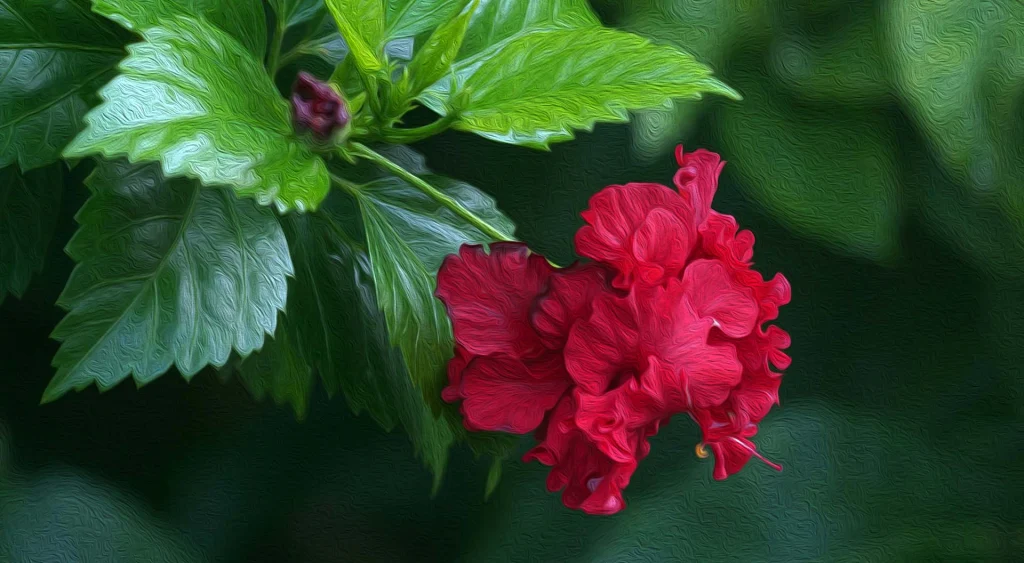鉴赏
白居易曾经担任杭州刺史,在杭州待了两年,后来又担任苏州刺史,任期也一年有余。在他的青年时期,曾漫游江南,旅居苏杭,应该说,他对江南有着相当的了解,故此江南在他的心目中留有深刻印象。当他因病卸任苏州刺史,回到洛阳后十二年,他六十七岁时,写下了三首忆江南,可见江南胜景仍在他心中栩栩如生。
本诗其第一首,作者泛忆江南,兼包苏、杭,写春景。
全词五句。一开口即赞颂“江南好!”正因为“好”,才不能不“忆”。“风景旧曾谙”一句,说明那江南风景之“好”不是听人说的,而是当年亲身感受到的、体验过的,因而在自己的审美意识里留下了难忘的记忆。既落实了“好”字,又点明了“忆”字。接下去,即用两句词写他“旧曾谙”的江南风景:“日出江花红胜火,春来江水绿如蓝。”“日出”、“春来”,互文见义。春来百花盛开,已极红艳;红日普照,更红得耀眼。在这里,因同色相烘染而提高了色彩的明亮度。春江水绿,红艳艳的阳光洒满了江岸,更显得绿波粼粼。在这里,因异色相映衬而加强了色彩的鲜明性。作者把“花”和“日”联系起来,为的是同色烘染;又把“花”和“江”联系起来,为的是异色相映衬。江花红,江水绿,二者互为背景。于是红者更红,“红胜火”;绿者更绿,“绿如蓝”。
题中的“忆”字和词中的“旧曾谙”三字还说明了此词还有一个更重要的层次:以北方春景映衬江南春景。全词以追忆的情怀,写“旧曾谙”的江南春景。而此时,作者却在洛阳。比起江南来,洛阳的春天来得晚。作者写于洛阳的《魏王堤》七绝云:“花寒懒发鸟慵啼,信马闲行到日西。何处未春先有思,柳条无力魏王堤。”在江南“日出江花红胜火”的季节,洛阳却“花寒懒发”,只有魏王堤上的柳丝,才透出一点儿春意。
花发得比江南晚,水也有区别。洛阳有洛水、伊水,离黄河也不远。但即使春天已经来临,这些水也不可能像江南春水那样碧绿。因此作者竭力追忆江南春景,从内心深处赞叹“江南好”,而在用生花妙笔写出他“旧曾谙”的江南好景之后,又不禁以“能不忆江南”的眷恋之情,收束全词。这个收束既托出身在洛阳的作者对江南春色的无限赞叹与怀念,又造成一种悠远而又深长的韵味。词虽收束,而余情摇漾,凌空远去,自然引出第二首和第三首。
appreciate
Bai Juyi served as the governor of Hangzhou for two years, and later served as the governor of Suzhou for more than a year. In his youth, he once roamed the south of the Yangtze River and lived in Suzhou and Hangzhou. It should be said that he knew quite well about the south of the Yangtze River, so the south of the Yangtze River left a deep impression in his mind. When he left his post as the governor of Suzhou due to illness and returned to Luoyang 12 years later, at the age of 67, he wrote three poems about Jiangnan, which shows that the scenery of Jiangnan is still alive in his mind.
The first poem of this poem is written by the author who recalls the Jiangnan area, and also writes about the spring scenery of Suzhou and Hangzhou.
There are five sentences in the whole word. When he opened his mouth, he praised “Jiangnan is good!” It is precisely because of “good” that we have to “remember”. The sentence “The scenery was once familiar with” shows that the “good” of Jiangnan scenery is not what people say, but what they personally felt and experienced in those years, leaving an unforgettable memory in their aesthetic consciousness. It not only implements the word “good”, but also points out the word “memory”. Next, he wrote his “old familiar” Jiangnan scenery in two words: “The red river flowers are better than the fire at sunrise, and the river water is as green as blue in spring.” “Sunrise” and “Spring” are mutually beneficial. In spring, flowers are in full bloom, and they are already very red; The red sun shines brightly. Here, the brightness of the color is improved due to the same hue baking. The spring river is green, and the bright red sunlight sprinkles over the river bank, making it even more green. Here, the contrast of different colors enhances the brightness of colors. The author links “flower” and “day” in order to dye with the same color; The “flower” and “river” are also linked in order to match each other in different colors. The river is red and the river is green, both of which are the background of each other. So red people are more red, “red is better than fire”; Green is more green, “green as blue”.
The word “Yi” in the title and the word “Jiuzengyao” in the word also show that the word has a more important level: the spring scenery in the north is used to set off the spring scenery in the south of the Yangtze River. The whole poem is about the spring scenery of Jiangnan, which was once familiar with. At this time, the author was in Luoyang. Spring in Luoyang comes later than that in Jiangnan. The seven wonders of the Wei King’s Embankment written by the author in Luoyang said: “The flowers are cold and the birds are chirping lazily, and the horses are walking leisurely to the west. Where do you think before spring? The willows are powerless than the Wei King’s Embankment.” In the south of the Yangtze River, in the season of “the sun rises and the river flowers are more red than fire”, Luoyang has “cold flowers and lazy hair”. Only the willow on the Wei King’s Embankment shows a little spring.
Flowers grow later than Jiangnan, and water is different. Luoyang is not far from the Yellow River. But even if spring has come, the water cannot be as green as the spring water in Jiangnan. Therefore, the author tries hard to recall the spring scenery of Jiangnan, and praises “Jiangnan is good” from the bottom of his heart. After writing the beautiful scenery of Jiangnan that he “once knew”, he can’t help but wrap up the whole word with the sentimental feeling of “not remembering Jiangnan”. This collection not only conveys the author’s infinite admiration and yearning for the spring scenery in the south of the Yangtze River, but also creates a long and lasting lasting appeal. Although the words are wrapped up, the lingering feelings are swaying and flying away, naturally leading to the second and third songs.












